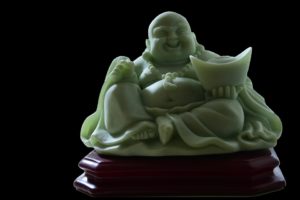When I say in this post to imagine something stop and imagine it, or you won’t get the necessary effect.
First, imagine falling. You catch yourself on your hands, you’re not seriously injured, but your hands are abraded and you’ve wrenched a muscle in you back.
Next. Imagine that you fell unavoidably: there was a small bit of ice, but you were walking carefully and there’s nothing you could have done.
Third: imagine that you were careless. There was an obvious piece of ice, you weren’t paying attention, and you knew there could be ice. Feel this.
Fourth: imagine that you feel on a walkway that someone should have cleared (it’s usually the law in places with a lot of snow and ice.) You were careful, but still fell. Feel this.
Fifth: imagine you feel because someone deliberately tripped you. Feel this.
…
If you’re a normal person and you took the time to actually feel, these felt different. Either number three (carelessness) or number five (someone tripping you), feels worst: you’re angry at yourself or someone else.
But even with the first one: it just happened and no one is responsible, you may be upset: it’s not just the pain you’re feeling, but your upset.
This anger, upset, hatred, sadness, etc… is what Buddha called the second arrow.
There is pain and nauseau and itching and so on. They feel bad. But unless you’ve got drugs or advanced meditative skills, they just happen, and there’s not much you can do about them.
Everything else is added by your emotional reaction. That’s the low-hanging fruit. That’s the stuff that’s (relatively) easier to control or choose.
Different people have different ways of doing this, but the first concept is simple enough “adding a negative emotion doesn’t help the situation, and it makes me feel worse.”
As someone who spent a lot of time beating themselves up for mistakes or not living up to my ideal self, I eventually realized that not only did it make me feel bad, it didn’t drive long term changes in behaviour. It had no benefit.
As for getting angry at other people, my experience, as someone who spent years and years not just angry, but enraged (long term readers will know I speak the truth), is that it didn’t help the situation, and it made me miserable (and eventually had negative health effects.)
As Mark Twain said, “Anger is an acid that can do more harm to the vessel in which it is stored than to anything on which it is poured.”
This doesn’t mean you have to forgive them, though sometimes that brings relief. It doesn’t mean you can’t take the person who didn’t clear the sidewalk to task, even to the police or court. You don’t need to be angry or to hate to act.
Which leads to a point I’ve made before: a lot of our emotions happen because we believe we ought to feel them. We ought to be sad, or angry or hate or love or be sympathetic. (Forcing yourself to feel positive emotions rarely works well, though learning to bring love or happiness or relaxation up is useful.)
If you think you should have an emotion, you probably will and if you don’t, you’ll feel bad because you aren’t being the person you think you should be. So kill the idea that you must feel certain emotions in certain circumstances.
You do this, in my experience, by carefully examining the question “does this emotion help and is it worth it?” Examine it now, and examine it next time you get upset.
If the answer to either question is “no”, stop believing you should have the emotion.
This is as true for simple things like dropping a plate on the floor. It’s done, and being upset makes the situation worse. Sometimes a display of remorse is necessary socially, but in my experience a rueful laugh and apology works fine with anyone who isn’t an asshole.
The second arrow is the low lying fruit. And remember, people who deliberately fuck with you usually want an emotional reaction from you. They like it when you get angry or upset.
So don’t. If you need to hit them or otherwise retaliate to make a point, do. But don’t bother with the anger or upset: you’re just giving them what they want. They love your anger, especially if you don’t do anything: your powerless rage makes them feel strong and in control.
Give your enemies nothing but hell. Never let them see you sweat. And as for the internal censor who think you should be upset and miserable, dump that guy.
And when you forget or fail, that’s when you forgive–yourself. Just try and remember next time.

 Our nature is happiness (well, actually bliss) and getting objects or doing things expecting those actions or objects to make you happy won’t work.
Our nature is happiness (well, actually bliss) and getting objects or doing things expecting those actions or objects to make you happy won’t work.
